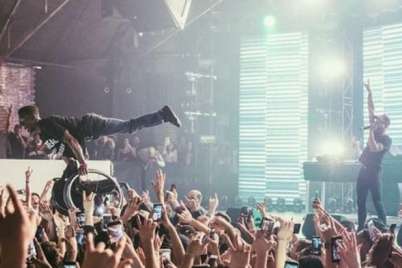
Study shows what motivates kids to be active
Children need physical activity for healthy development, so parents have a vested interest in helping their kids to learn to love activity. Unfortunately, a lot of factors discourage children and youth from being active.
The study called Monitoring Activities of Teenagers to Comprehend their Habits (MATCH) has provided more insight into those factors and how parents, coaches, and educators can remedy them.
MATCH followed nearly 1,000 children and youth for eight years, from ages 10 to 17, to better understand their participation in sport and activity. During that time, MATCH researchers examined the hours they spent in physical activity, along with their motives for being active, barriers to participating, and key influences on participation such as screen time, sleep, and personal events in their lives.
Researchers are still examining the data, but the preliminary findings have already been revealing. They include youth-perceived barriers to activity that are useful for parents, coaches, and educators to understand.
Two types of barriers
The MATCH research has identified a number of internal and external barriers that tend to hold kids back from participating in sport and physical activity.
Internal barriers are feelings and attitudes that children and youth hold towards activity. For example, “I am not interested in physical activity” is an internal barrier that keeps many children from even taking the first steps towards being active.
External barriers are physical circumstances that prevent or interfere with participation in sport and activity. For example, “I need equipment I do not have.”
Of these two types of barriers, the internal ones are perhaps the most concerning. Deeply held negative feelings and beliefs about physical activity can’t be remedied by simply buying running shoes or paying for sport registrations. If kids hold negative feelings towards activity, MATCH has shown that it won’t matter how much equipment or program access they have: they simply won’t choose to participate.
Related read: Active parents have more active kids
Confidence and self-efficacy
The MATCH data shows that children are more likely to participate in activity when they have developed feelings of confidence, enjoyment, and self-efficacy towards sport and physical activity. Both inside and outside of school, the research shows that these feelings have a big effect.
Children are more likely to participate in activity when they have developed feelings of confidence, enjoyment, and self-efficacy towards sport and physical activity.”
Parents indirectly impact these feelings through a variety of verbal and non-verbal behaviors. Non-verbal supports include things such as watching their child participate in physical activities and being active role models. Verbal supports include talking to their child about the benefits of physical activity.
Direct tangible supports also have a big impact. When parents provide direct supports such as driving to games and training sessions, their child’s feelings of self-efficacy and enjoyment increase. However, when they try to control too many aspects of their children’s participation, feelings of self-efficacy and enjoyment decrease.
Tips for parents
The MATCH team offers several tips for promoting children’s feelings of self-efficacy and enjoyment:
- Avoid controlling behaviours such as nagging or ordering your child to participate in physical activity.
- Support your child’s physical activity practices by engaging in physical activity with them, watching their games and practices, and facilitating travel for their sport or activity events.
- Be conscious of your own attitudes towards sport and physical activity. For example, if you have negative feelings about physical activity, try to overcome those feelings and be more positive in order to support your child.
- Acknowledge that your child faces internal and external barriers to being active.
- Help your child articulate the barriers they experience and discuss coping strategies with them.
Tips for coaches & educators
The following tips will help coaches and educators promote feelings of self-efficacy and enjoyment in young athletes and students:
- Be conscious of your own attitudes towards sport and physical activity. For example, if you think team sports are the most important thing in life, the kids in your care don’t need to agree.
- Use creativity to make your practices and classes fun (not just educational).
- Avoid controlling behaviours and leave room for some autonomy.
- Help develop the self-efficacy of the kids in your programs by supporting them in overcoming obstacles during practices and classes.
These tips are just the beginning. With eight years of data under review, MATCH researchers will likely have more to offer parents, coaches, and educators for years to come.
It’s important work. If the research helps adults to understand why children participate in sport and activity, then we can do a better job of helping kids to develop the feelings, attitudes, and beliefs that will keep them active for life.





